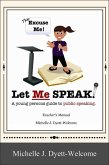In "The Young Man's Guide," William A. Alcott articulates a comprehensive discourse on personal conduct, moral integrity, and the cultivation of character for young men in the 19th century. Employing a didactic and reflective literary style, Alcott weaves together principles of moral philosophy with everyday life, urging readers to embrace responsibility and virtue. The book is situated within the context of the Transcendentalist movement, which emphasized individualism and self-reliance, mirroring contemporaneous discussions about the moral formation of youth in a rapidly changing society. William A. Alcott, a physician, educator, and prolific writer, was deeply influenced by the social reform movements of his time. His own educational background and commitment to the wellness of youth motivated him to pen this guide as a roadmap for young men seeking direction in their formative years. Drawing from personal experiences and prevailing philosophical ideas, Alcott sought to impart wisdom grounded in common sense, morality, and a healthy lifestyle, making him an essential figure in the conversation on education and character development. I highly recommend "The Young Man's Guide" to both young readers and adults seeking to foster a thoughtful dialogue on personal development and ethics. Alcott's insights remain relevant today, offering timeless guidance on navigating the trials of youth while emphasizing the importance of integrity and self-discipline in constructing a fulfilling life.
Dieser Download kann aus rechtlichen Gründen nur mit Rechnungsadresse in A, B, BG, CY, CZ, D, DK, EW, E, FIN, F, GR, H, IRL, I, LT, L, LR, M, NL, PL, P, R, S, SLO, SK ausgeliefert werden.









